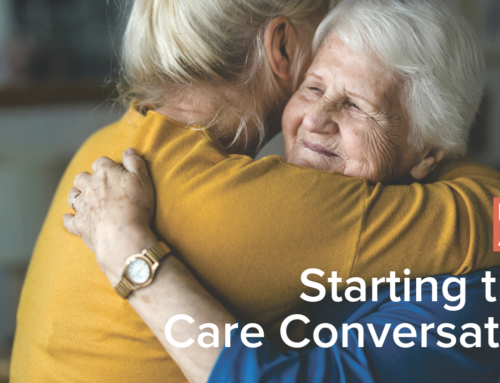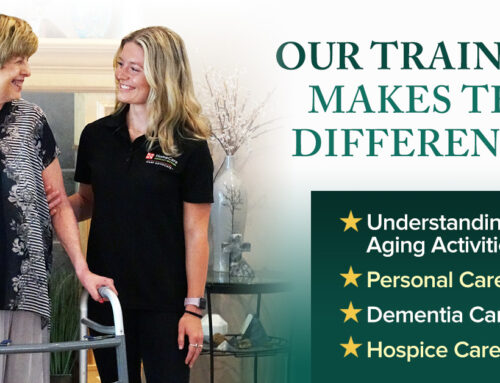What Makes a Great Caregiver?
Caregiving can be a life changing experience – just ask Aaron Blight.
“My experience with caregiving started more than 20 years ago when I was working for the Centers for Medicare and Medicaid Services – I was in the federal Medicaid program, and I was relatively young,” he said. “My mother-in-law was unexpectedly diagnosed with a brain tumor that just came out of the blue, and our family was upended with that diagnosis. She moved in with us, and we ended up being family caregivers for five-and-a-half years. It was a challenging time for our family, but ultimately it led me to change the course of my career. I opened a home care company and served a lot of families like mine.”
Blight also returned to school to get his doctoral degree – studying caregiving as a phenomenon of social science. He eventually sold his come care business and started
Caregiving Kinetics – a firm that offers caregiving consulting services to organizations and groups all over the world. He also authored the book, When Caregiving Calls.
“Now I work with family caregivers, professional caregivers and care organizations to try and help them understand and appreciate the caregiving experience on a deeper level,” he said.
What it takes to be a good caregiver.
When asked what it takes to be a good caregiver, Blight said pointed to the equation – talent + investment = strength.
“On the individual level, people have the raw abilities – the traits that are inherent in being a good caregiver. That’s the talent part of the equation – just having those raw abilities,” he said. “The investment comes with your dedication to improving yourself as a caregiver. That investment, coupled with your raw abilities, will help you develop the strength and capacity to endure in a caregiving role over the long haul.”
Organizationally, Blight said the talent is the team – finding those people that have the raw ability to be a caregiver. The investment, from an organizational level, is the time and resources that are devoted to training the team – giving them the skills they need to provide exceptional care.
“As you couple those things, finding the people with the raw abilities, and investing the time and resources that are needed to develop them, you’re going to have a strong caregiving team,” he said.
Blight said once the caregiver team is in place, it’s important to appropriately match them with clients.
“Of course, they need to be able to meet the needs of the client – but personality is also important. The client and caregiver should get along well – the caregiver enjoys the client and the client enjoys the caregiver and looks forward to the visit,” he said. “Another component of this is dependability and consistency. So often in home care, an overarching theme is consistency of the schedule, consistency of the caregiver. Being able to have that caregiver there when needed is very important.”
Relationships are partnerships.
Over time, Blight said families often look at the relationship as a partnership – so they no longer feel alone when providing care for their aging loved one.
“A very happy client or family is looking at the home care agency and saying – they are solving a problem for me. This is a challenge we have and they’re meeting with a solution that meets our needs and our circumstances on our time table. The problems we have are being eliminated thanks to this care provider,” he said. “This partnership really can bolster the family’s confidence in the future in being able to meet the needs of their loved one.”
That’s especially important through the end of life stages.
“It’s a very emotional time – maybe something the family has never experienced – but Home care providers have been there over and over again,” he said. “Having someone who’s present and who has an understanding of end of life – with compassion through a very difficult time – can make a huge difference in the end of life experience with families. They will always, always remember that.”
Desire sets caregivers apart.
So, what sets the great caregivers apart from those that are just okay? According to Bight, it’s desire.
“If people are just looking for a paycheck, they will never be a great caregiver,” he said. “People who have a genuine desire to be a great caregiver, usually become great caregivers.”
Become a caregiver.
If you think you have what it takes to be a great caregiver, we would love for you to join the HCAN team. Give us a call at 403-359-1996 or visit www.hcanthrive.com.
Checkout the podcast.
Want to learn more about what it takes to be a great caregiver from Aaron Blight. Listen to the HomeCare Hub podcast.






